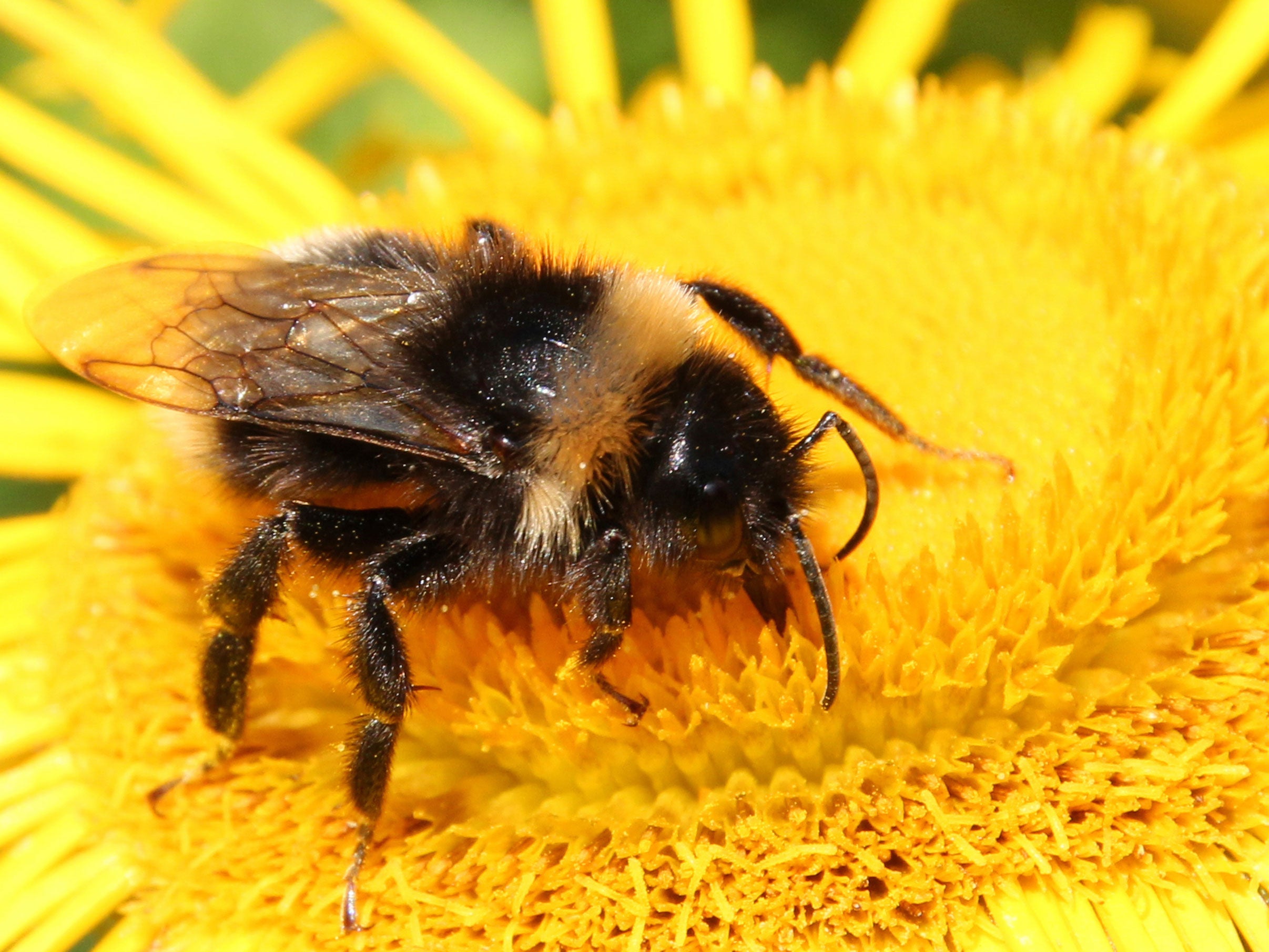Tory attempt to prevent complete EU ban on bee-killing pesticides thrown out by MEPs
Conservative opposition to full neonicotinoid ban in EU raises concern the Government will allow the chemicals to be used post-Brexit, say environmentalists

An attempt by a Conservative politician to prevent a full ban on pesticides blamed for harming bees has been thrown out by MEPs.
Julie Girling, who represents south-west England and Gibraltar, put forward a motion in the European Parliament’s environment committee opposing plans to extend restrictions on the use of three neonicotinoid pesticides to all crops.
She said the plan for a complete ban was “disproportionate” and warned it could lead to the increased use of other pesticides.
Scientific evidence that neonicotinoids cause significant damage to bees – important pollinators of major food crops – has been growing.
One major 18-year study, published in the prestigious journal Nature, concluded use of the chemicals was associated with “large-scale population extinctions” of wild bees in areas where it was used.
However the National Farmers Union has argued the pesticides, or similar “plant protection products”, are required to produce “wholesome, affordable food”.
A partial ban on three neonicotinoids has been in place across the EU since 2013 and the European Commission is expected to extend this to all crops later this year.
The MEPs did not have the power to prevent this from happening but a vote against the move could have put the Commission under pressure over the issue.
However, 43 MEPs voted against Ms Girling’s attempt to block the full ban, with just eight in favour and seven abstentions.
The news was welcomed by environmentalists.
Sandra Bell, a nature campaigner at Friends of the Earth, said: “We’re delighted MEPs are backing our bees and have overwhelmingly rejected this attempt to oppose a complete ban on bee-harming neonicotinoid pesticides.
“There is mounting scientific evidence supporting the European Commission’s proposal to extend the ban to more crops, and this should now be backed by national governments.”
There are concerns that the UK will ditch legislation designed to protect wildlife after Brexit, despite pledges to the contrary by the Conservatives.
“Michael Gove [the new Environment Secretary] must demonstrate his environmental credentials by backing an extension of the ban – and committing to keep it post-Brexit,” Ms Bell said.
Matt Shardlow, chief executive of insect charity Buglife, accused the Government of failing to live up to its own rhetoric.
“The UK Government is giving the impression of caring about bees and pollinators, while Conservative politicians in Europe are doing everything in their power to block efforts to protect bees from pesticides,” he said.
“We hope Michael Gove will listen to the experts and provide reassurance that in the UK and the EU action will be taken to ensure that the huge pollinator declines caused by pesticides never happen again.”
In a statement, Ms Girling said the European Commission’s proposal was “disproportionate”.
“It has not been demonstrated that the measures are either appropriate or necessary to achieve the objectives; there are a number of less burdensome measures which could have been pursued but which were not considered by the Commission, particularly when we consider that this ban will apply to crops which do not flower and which are not attractive to bees,” she said.
“I also maintain that there are significant environmental concerns attached to these proposals – namely increased spraying of alternative insecticides which increases water use and carbon dioxide emissions, as well as increasing the risk to non-target organisms and spray drift onto organic farms.
“I also fear that this sole focus on neonicotinoids is preventing the Commission and policy-makers from investing attention and funds into other potential causes of bee mortality, such as varroa [a parasitic mite].”
She complained there were “certain NGOs which are trying to make this into a binary discussion on whether one is for or against all pesticides, and whether or not pesticides should be allowed in agriculture”.
“I maintain that the issue is much more nuanced and that there is a place for the correct and sustainable use of pesticides in order to allow farmers to provide us with safe and affordable food,” she said.
A spokesperson for the Department for Environment, Food and Rural Affairs said: “The Government has fully applied restrictions on the use of neonicotinoids introduced by the EU to date and no decision on this new proposal has yet been made.
“As always with pesticides, we will base our position on a technical evaluation of the best scientific evidence available.”
Join our commenting forum
Join thought-provoking conversations, follow other Independent readers and see their replies
Comments